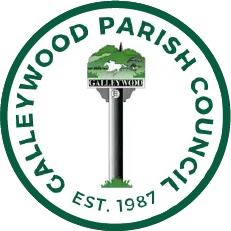Powers and Duties
Powers are contained within legislation, which permits actions that a council can take at their discretion.
Duties are legal obligations that are set out in law, which stipulate actions that a council must take.
A local council has the authority to spend an allowance of money that it has budgeted for, which is in the interests of the area for all or some of its inhabitants. This is known as s137.
The s137 allowance figure provided by the Department for Levelling Up, Housing and Communities in 2025/26 is £11.10 per elector.
The general power of competence gives local Councils in England the power to act in the same way that an individual can, providing no other laws are broken.
The general power of competence is referred to as the power of first resort and was brought in to give more trust to councils, encouraging them to be innovative.
There are two criteria required for eligibility as set out in the Parish Council (General Power of Competence) (Prescribed Conditions) Order 2012 which are:
- Two thirds of the council must have been elected at the last ordinary election or by-election.
- Must employ a qualified Clerk
Duty to provide officers and carry out meetings
- Elect a chairman (This is carried out annually or immediately following an election)
- Appoint a Clerk
- Appoint a Responsible Financial Officer (RFO)
- Appoint Independent Internal Auditor
- Hold an Annual Council meeting
- Hold at least three council meetings
- Call an Annual Parish Meeting
Duty to provide facilities
Allotments – Duty to consider providing allotment gardens if demand is unsatisfied.
Duty to assess the impact of Decisions
Assess the impact of Decisions taken by the Parish Council on Crime Reduction and Disorder (LGA 1972 section 137)
Powers to provide facilities
Parish Councils have powers to provide some facilities themselves, or they can contribute towards their provision by others. There are large variations in the services provided by parishes, but they can include the following:
- Support and encouragement of arts and crafts
- Provision of village halls
- Provision and maintenance of recreation grounds, parks, children’s play areas, playing fields and swimming baths
- Provision and maintenance of cemeteries and crematoria
- Maintenance of closed churchyards
- Cleaning and drainage of ponds, watercourses and ditches
- Control of litter
- Provision and maintenance of public toilets
- Creation and maintenance of footpaths and bridleways
- Provision of cycle and motorcycle parking
- Acquisition and maintenance of rights of way
- Provision and maintenance of public clocks
- Maintenance of war memorials
- Encouragement of tourism
They may also provide the following, subject to the consent of the County Council or Unitary Authority of the area in which they lie:
- Bus shelters
- Signposting of footpaths
- Lighting of footpaths
- Off-street car parks
- Provision, maintenance and protection of roadside verges
Representative powers
Parish Councils must be notified by the Unitary Authority or County Council of:
- All planning applications in their areas
- Intention to provide a burial ground in the parish
- Proposals to carry out sewerage works
- Footpath and bridleway (more generally, ‘rights of way’) surveys
- Intention to make byelaws in relation to hackney carriages, music and dancing, promenades, and street naming
Miscellaneous powers
In some cases, Parish Councils possess the following powers:
- Creation of a Neighbourhood Plan
- Guardianship of Common Land
- Withholding of consent to stop up unclassified highways and footpaths
- Consultation on appointment of Governors of Primary Schools
- Appointing Trustees of local Charities
What powers and duties do Parish Councils have?
Parish Councils have a variety of powers and duties, all of which impact directly on the community.
The following are all under the remit of Local Councils:
- Allotments
- Burial Grounds, Cemeteries, Churchyards and
- Crematoria
- Bus Shelters
- Bye-laws – the power to make bye-laws concerning: baths and washhouses (swimming pools), cycle parks, mortuaries and pleasure grounds
- Clocks – public clocks can be provided and must be maintained
- Community Centres, Conference Centres, Halls, Public Buildings
- Drainage – of ditches and ponds
- Entertainment and the Arts
- Footpaths
- General Spending – Parish Councils can spend a limited amount of money on anything they deem of benefit to the community that is not covered by the other specific responsibilities described in this list
- Gifts – Parish Councils may accept gifts
- Highways – lighting, parking places, right to enter into discussions about new roads and road widening, consent of Parish Council required for diversion or discontinuation of highway, traffic signs and other notices, tree planting and verge maintenance
- Land – acquisition and sale of
- Legal proceedings – power to prosecute and defend any legal proceedings in the interests of the community, power to take part in any public enquiry
- Litter – provision of litter-bins and support for any anti-litter campaigns
- Planning – Parish Councils must be notified of, and display for residents, any planning applications for the area. Any comments submitted to the Planning Authority by the Parish Council must be taken into account
- Postal and Telecommunication Facilities – power to pay a public telecommunications operator any loss sustained in providing services in that area
- Public Conveniences – provision and maintenance of public toilets
- Recreation – provision of recreation grounds, public walkways, pleasure grounds, open spaces, village greens, gymnasiums, playing fields, holiday camps and boating ponds
- Rights of Way – footpath and bridleway maintenance
Seats (public) - Signs – danger signs, place names and bus stops signs
- Tourism – financial contributions to any local tourist organisations allowed
- Traffic Calming
- War Memorials
- Water Supply – power to utilise stream, well or spring water and to provide facilities for general use
